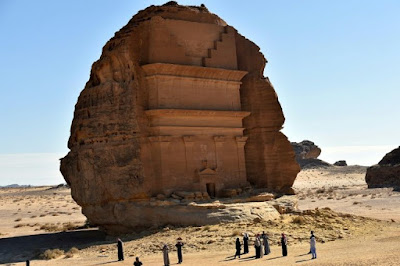 |
It is one
of the deadliest bomb attacks to strike the southern Philippines in
years (AFP
Photo/NICKEE BUTLANGAN)
|
Jolo (Philippines) (AFP) - At least 18 people were killed Sunday when a double bomb attack hit a Catholic church on a southern Philippine island that is a stronghold of Islamist militants, the military said, days after voters backed expanded Muslim self-rule in the region.
In an
attack claimed by the Islamic State group, a powerful first blast shattered
pews, broke windows and left bodies strewn inside the cathedral in the
Catholic-majority nation's restive south as mass was being celebrated.
Moments
later a second explosion outside killed troops who were rushing to help the
wounded in the smoking and heavily damaged church on Jolo, which is
overwhelmingly Muslim.
It is one
of the deadliest bomb attacks to strike the insurgency-plagued southern
Philippines in years, and shows militants in the region are still a threat
despite recent steps toward peace, experts said.
The
bloodshed came less than a week after voters' decisive approval of giving
Muslims in the south more control over their own affairs, which sparked hopes
of quelling long-time separatist violence.
"Just because the (referendum) has passed does not mean that things are going to get better overnight," said Gregory Wyatt, director for business intelligence at PSA Philippines Consultancy.
 |
Manila
swiftly vowed to hunt down the attackers, but no group has claimed the
bombing
(AFP Photo/NICKEE BUTLANGAN)
|
"Just because the (referendum) has passed does not mean that things are going to get better overnight," said Gregory Wyatt, director for business intelligence at PSA Philippines Consultancy.
"There
are still militant groups that will continue to be active and pose a security
threat," he told AFP.
Pope
Francis, speaking in Panama, expressed his "strongest reprobation"
for the violence. Once again, he said, "the Christian community has been
plunged into mourning."
Bishop Angelito Lampon, who previously served in Jolo, said Sunday's attack may be the worst, but was certainly not the first on the church.
Bishop Angelito Lampon, who previously served in Jolo, said Sunday's attack may be the worst, but was certainly not the first on the church.
"In my
20 years there from 1998 to last week, there were seven hand grenades lobbed
into our cathedral," he told AFP. "Fortunately there was just a
little damage and no casualties."
IS group
claim
The Islamic
State group claimed responsibility for the attack, issuing a formal communique
saying two suicide bombers had detonated explosive belts, according to the SITE
Intelligence Group which monitors jihadist activities.
But a
military report said the second bomb was left in the utility box of a
motorcycle in the parking area outside the church.
 |
Authorities
said the notorious Abu Sayyaf kidnap-for-ransom group could be
behind the
blasts (AFP Photo/NICKEE BUTLANGAN)
|
Manila
swiftly vowed to hunt down the attackers.
"We
will pursue to the ends of the earth the ruthless perpetrators behind this
dastardly crime," presidential spokesman Salvador Panelo said in a
statement. "The law will give them no mercy."
Five
soldiers, a member of the coast guard and 12 civilians were among the dead while
83 other people were wounded, said regional military spokesman Lieutenant
Colonel Gerry Besana.
The
regional police chief Graciano Mijares put the toll slightly higher at 20 dead,
lower than a figure of 27 he gave initially.
Pro-IS
militants are among multiple armed networks based in the strife-torn region of
Mindanao.
President
Rodrigo Duterte put the southern Philippines under martial rule after pro-IS
militants seized the southern city of Marawi in May 2017.
A bombing
the previous year that ripped through a bustling night market in Duterte's
hometown left 15 dead, and was blamed on the Maute gang of Islamist militants
that pledged allegiance to IS.
Before the IS jihadists' claim emerged, Besana said the notorious Abu Sayyaf kidnap-for-ransom group could be behind the blasts, but added officials were "not discounting the possibility that there are other perpetrators".
 |
The door,
pews and glass windows of Mount Carmel Cathedral were blown off,
military
photos showed (AFP Photo/HANDOUT)
|
Before the IS jihadists' claim emerged, Besana said the notorious Abu Sayyaf kidnap-for-ransom group could be behind the blasts, but added officials were "not discounting the possibility that there are other perpetrators".
The remote
island of Jolo is a base of the Abu Sayyaf, which is blamed for deadly
bombings, including an attack on a ferry in Manila Bay in 2004 that claimed 116
lives in the country's deadliest terror assault.
'Peace
must prevail'
Neither the
hardline factions aligned with IS nor the Abu Sayyaf were part of the
decades-long peace process with the nation's largest separatist group, Moro
Islamic Liberation Front, that culminated January 21 with the resounding
approval of a new Muslim led-region in the south.
Rebels and
the government in Manila hope the new so-called Bangsamoro area will finally
draw the investment needed to pull the region from the brutal poverty that
makes it a hotspot for radical recruitment.
Despite
Sulu province -- which includes Jolo -- voting against creating the new region,
the area will still be part of the Bangsamoro.
The timing
of Sunday's bombs raised questions on whether the attack was meant to derail
the peace process.
National
Security Adviser Hermogenes Esperon said "extremist criminals"
plotted the bombings.
"We
will not allow them to spoil the preference of the people for peace,"
Esperon said. "Peace must prevail over war."












